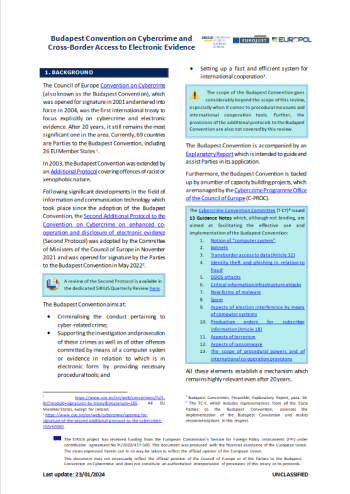
The Council of Europe Convention on Cybercrime (Budapest Convention) was the first international treaty to focus explicitly on cybercrime. Its aim is to function as an international framework for the harmonization of cybercrime-related legislation and to facilitate the fight against criminal offences making use of computer networks. The Budapest Convention is regarded as the most comprehensive and coherent international agreement on cybercrime and electronic evidence to date. It continues to be a global reference point for developing domestic legislation on cybercrime and serves as a framework for international co-operation between State Parties.
This document analyses the Budapest Convention and provides information on its scope, covering multiple crimes ranging from illegal access and data and systems interference to computer-related fraud and child pornography, procedural measures to investigate cybercrime and secure electronic evidence, and international cooperation tools available to State Parties.
The document was prepared within the framework of the SIRIUS Project. The SIRIUS Project has received funding from the European Commission’s Service for Foreign Policy Instruments under Contribution Agreement No PI/2020/417-500.
